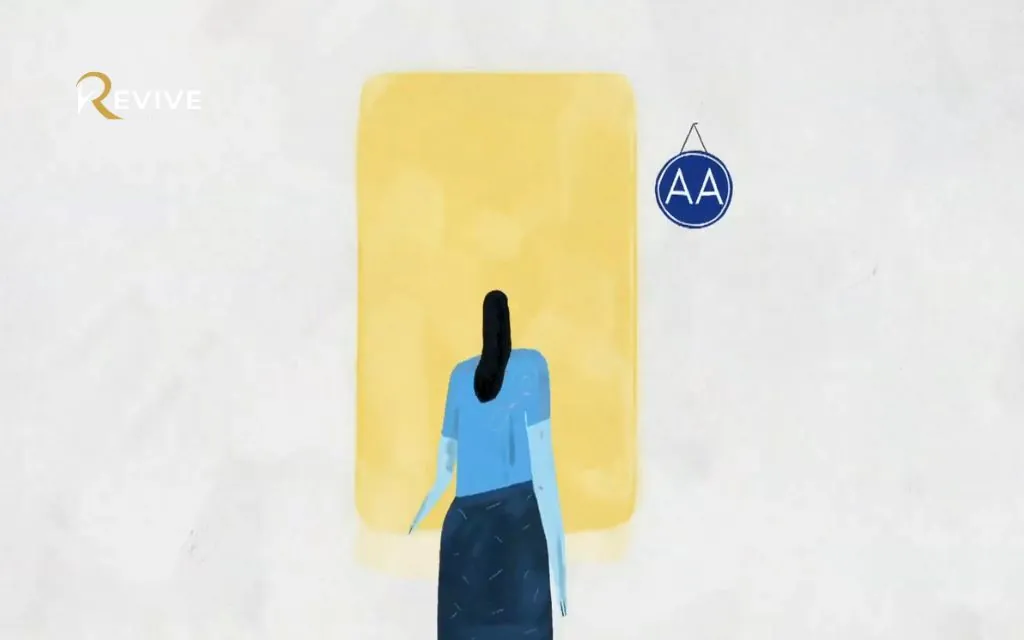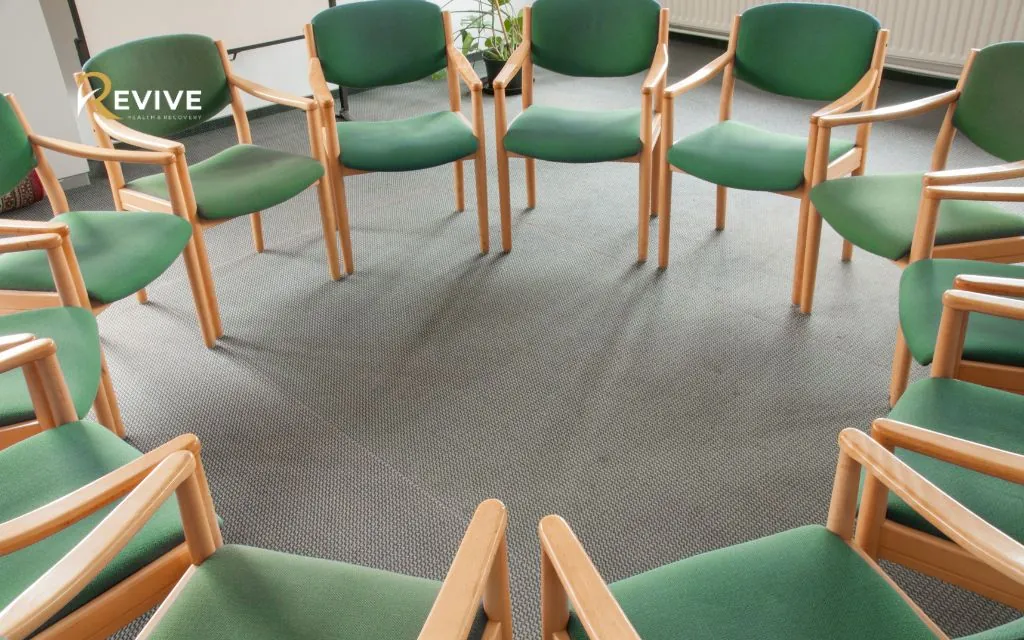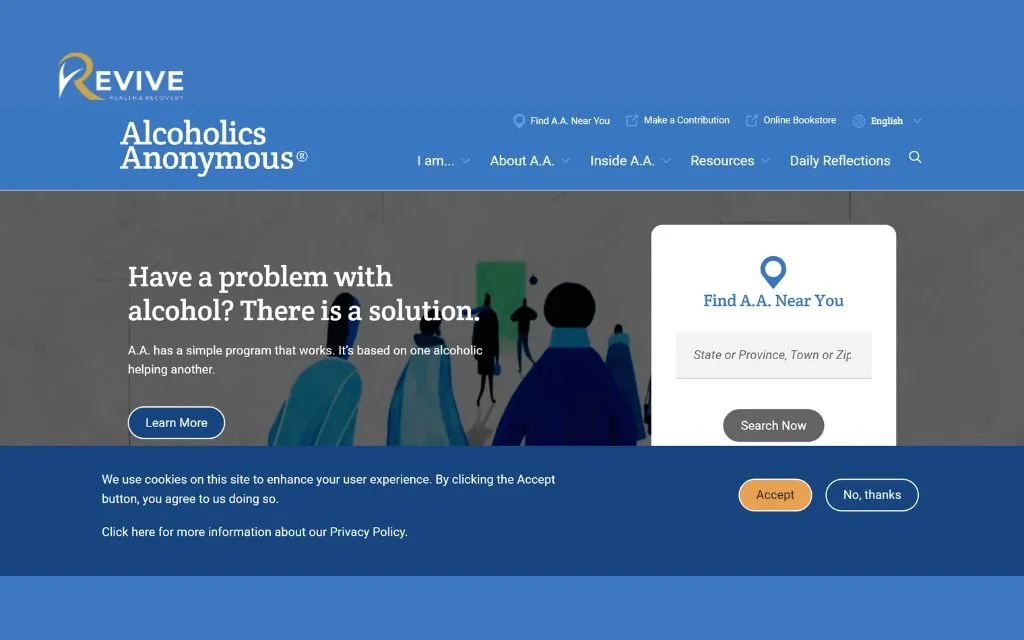Alcoholics Anonymous has been helping people overcome alcohol addiction since 1935, offering hope to millions worldwide through its proven 12-step program. If you’re struggling with alcohol use disorder or seeking support for a loved one in Colorado, understanding AA’s approach can transform your life. This fellowship of individuals who share their experiences, strength, and hope provides a foundation for recovery without cost or requirements.
Whether you’re in Denver, Colorado Springs, or anywhere across Colorado, alcoholics anonymous meetings are available to support your journey to sobriety. For those dealing with both addiction and mental health challenges, combining AA participation with professional treatment creates the strongest foundation for lasting recovery.
What is alcoholics anonymous?
Alcoholics Anonymous is a fellowship of people who share their experience, strength, and hope with each other to solve their common problem and help others recover from alcoholism. The only requirement for membership is a desire to stop drinking. There are no dues or fees for AA membership.
The program operates on a peer support model where people with similar experiences help one another. This approach breaks the isolation that often accompanies addiction. AA groups meet regularly in communities worldwide, creating a network of support that extends far beyond individual meetings.
What makes alcoholics anonymous unique is its democratic structure. No single authority controls the organization. Each group remains autonomous, guided by the 12 Traditions that help maintain unity and purpose.

The program welcomes people from all backgrounds, religions, and walks of life. This diversity strengthens the fellowship and shows that recovery is possible for anyone willing to take the first step.
Ready to explore your recovery options? Contact Revive Health Recovery at (303) 268-4655 to discuss how we can support your journey alongside AA participation.
The history and founding of AA
Bill Wilson and Dr. Bob Smith founded alcoholics anonymous in Akron, Ohio, in 1935. Their meeting marked the beginning of a movement that would eventually help millions of people worldwide. Bill Wilson experienced what he described as a spiritual awakening at Towns Hospital in 1934, which became the foundation for AA’s spiritual approach to recovery.
The Big Book, officially titled “Alcoholics Anonymous,” was published in 1939 and has since sold over 30 million copies. This book contains the personal stories of early AA members and outlines the 12-step program that guides recovery efforts.
From two people in 1935, alcoholics anonymous has grown to over 2 million members in more than 180 countries. The program operates through approximately 115,000 groups worldwide, making it one of the most accessible recovery resources available.
The Oxford Group’s spiritual principles influenced the development of the 12 steps. However, AA adapted these concepts to focus specifically on alcohol addiction and created a more inclusive approach that welcomes people of all faiths or no faith at all.
How does alcoholics anonymous help with alcoholism?
Alcoholics Anonymous helps people deal with alcoholism through several key mechanisms. First, peer support creates connections with others who understand the challenges of addiction firsthand. This shared experience reduces shame and isolation, two factors that often perpetuate drinking patterns.
The program provides practical tools for daily sobriety. Members learn coping strategies from others who have faced similar situations. These tools include techniques for handling triggers, managing stress, and building healthy relationships.
Regular meeting attendance creates structure and accountability. When people commit to attending meetings, they create positive routines that replace drinking behaviors. The fellowship provides encouragement during difficult times and celebrates milestones in recovery.

Stanford Medicine research published in 2020 validates the effectiveness of alcoholics anonymous. The study found that AA participation leads to higher rates of abstinence compared to other treatment approaches. This scientific evidence supports what members have experienced for decades.
The sponsorship system pairs newcomers with experienced members who provide guidance and support. Sponsors help navigate the 12 steps and offer perspective during challenging moments. This one-on-one mentorship creates strong bonds that support long-term recovery.
Wondering if AA alone is enough for your situation? Call Revive Health Recovery at (303) 268-4655 to discuss comprehensive dual diagnosis treatment options.
The 12 steps of alcoholics anonymous explained
The 12 steps of alcoholics anonymous form the core of the recovery program. These steps provide a framework for personal growth and spiritual development that supports lasting sobriety.
Steps 1-3: Foundation and surrender
- Step 1 involves admitting powerlessness over alcohol and recognizing that life has become unmanageable. This admission creates the foundation for all future growth.
- Step 2 encourages belief in a power greater than oneself that can restore sanity.
- Step 3 involves making a decision to turn one’s will and life over to this higher power.
Steps 4-9: Action and accountability
These steps require honest self-examination and making amends for past wrongs.
- Step 4 involves taking a fearless moral inventory.
- Steps 5 through 9 focus on sharing this inventory, becoming ready for character change, asking for removal of defects, making amends lists, and actually making direct amends where possible.
Steps 10-12: Maintenance and service
The final steps focus on continued growth and helping others.
- Step 10 involves continued personal inventory.
- Step 11 emphasizes prayer and meditation to improve conscious contact with one’s higher power.
- Step 12 encourages sharing the message with other alcoholics and practicing these principles in all areas of life.
The steps are suggestions rather than requirements. People work through them at their own pace with guidance from sponsors and the fellowship. This flexibility makes the program accessible to people with different backgrounds and beliefs.
Finding AA meetings in Colorado and Denver
Finding alcoholics anonymous meetings in Colorado is straightforward thanks to well-organized resources. The Denver Area Central Committee (DACCAA) maintains current meeting schedules and locations throughout the Denver metro area. Colorado AA Area 10 serves the entire state, helping connect people with meetings in rural and urban areas alike.
Meeting types and formats
Open meetings welcome anyone interested in learning about alcoholics anonymous. Closed meetings are for people who have a desire to stop drinking. Speaker meetings feature personal stories from AA members, while discussion meetings focus on specific topics or step work.
Online and in-person options
Both online and in-person meetings are available throughout Colorado. Online meetings expanded significantly and now provide access for people in remote areas or those with transportation challenges. In-person meetings offer face-to-face connection that many find essential for recovery.
Denver metro meeting schedules
Denver offers meetings throughout the day and evening seven days a week. Popular meeting locations include community centers, churches, and hospitals. The variety of meeting times accommodates different work schedules and life circumstances.
Rural Colorado meeting access
Smaller Colorado communities maintain active AA groups with regular meetings. When local meetings aren’t available, online participation connects rural residents with the broader AA fellowship.
Need help finding the right meeting for you? Contact Revive Health Recovery at (303) 268-4655 for guidance on local resources and treatment options.
What to expect at your first AA meeting

Attending your first alcoholics anonymous meeting can feel intimidating, but knowing what to expect helps reduce anxiety. Most meetings begin with a moment of silence followed by the Serenity Prayer. A chairperson leads the meeting and may read from AA literature.
Arrival and check-in process
Arrive a few minutes early to get oriented. People may introduce themselves using first names only. Someone might offer to sit with you and explain the meeting format. This welcoming approach helps newcomers feel comfortable.
Meeting structure and participation
Meetings typically last 60 to 90 minutes. The format varies but often includes readings, sharing time, and announcements. You are never required to speak. Many people attend for weeks or months before sharing their experiences.
Common concerns addressed
First-time attendees often worry about confidentiality, religious aspects, or feeling pressured to participate. AA maintains strict anonymity principles. The spiritual program welcomes people of all faiths or no faith. Participation remains entirely voluntary.
After the meeting
Many meetings end with everyone joining hands for a closing prayer or saying. People often continue conversations over coffee or dinner. These informal connections help build the supportive relationships that sustain recovery.
AA success rates and effectiveness
Research consistently demonstrates the effectiveness of alcoholics anonymous for alcohol addiction recovery. Stanford Medicine conducted comprehensive studies showing that AA participation leads to higher abstinence rates compared to other treatment approaches alone.
Scientific validation
The Cochrane Review, considered the gold standard for medical research, found that AA helps people achieve and maintain abstinence more effectively than no intervention or other treatments. This scientific backing supports the personal testimonies of millions of AA members.
Cost-effectiveness
Alcoholics anonymous meetings are completely free, making recovery accessible regardless of financial circumstances. When compared to other treatment options, AA provides exceptional value while delivering measurable results.
Long-term sobriety statistics
Studies show that people who actively participate in AA maintain sobriety at higher rates than those who attempt recovery alone. Regular meeting attendance, sponsorship relationships, and step work correlate with improved outcomes.
Individual success factors
Success in alcoholics anonymous depends on personal commitment and active participation. People who attend meetings regularly, work with sponsors, and engage with the fellowship experience better outcomes than passive participants.
Curious about combining AA with professional treatment? Call Revive Health Recovery at (303) 268-4655 to explore comprehensive recovery options.
AA and dual diagnosis: Mental health considerations
Many people seeking help through alcoholics anonymous also struggle with mental health disorders such as depression, anxiety, or PTSD. This combination, known as dual diagnosis, requires specialized attention that AA meetings alone may not provide.
Co-occurring disorders and AA participation
Alcoholics anonymous provides valuable peer support and spiritual growth opportunities. However, mental health disorders often need professional treatment including therapy and medication management. The combination of AA participation and clinical care creates comprehensive support.
When additional treatment is needed
Signs that professional help might be beneficial include persistent depression, severe anxiety, trauma symptoms, or personality disorders. These conditions can interfere with recovery if left untreated. Professional dual diagnosis treatment addresses both addiction and mental health simultaneously.
Integration with professional mental health services
The most effective approach often combines AA participation with evidence-based therapies. This integration allows people to benefit from peer support while receiving specialized treatment for mental health conditions.
Revive Health Recovery’s approach At Revive Health Recovery, we understand that recovery often requires multiple approaches. Our dual diagnosis treatment works alongside AA participation to address both addiction and underlying mental health conditions. This comprehensive approach strengthens the foundation for lasting recovery.
Common concerns about alcoholics anonymous
People considering alcoholics anonymous often have questions about the program’s approach and requirements. Understanding these concerns helps people make informed decisions about their recovery journey.
Religious versus spiritual aspects
Alcoholics anonymous is spiritual but not religious. The program refers to “God as you understand Him” and welcomes people of all faiths or no faith. Many members interpret their higher power in personal ways that work for their beliefs.
Anonymity and privacy protection
AA maintains strict anonymity principles. Members use first names only and commit to protecting each other’s privacy. This confidentiality creates a safe space for honest sharing and vulnerability.
Different personality fit concerns
Some people worry that AA won’t suit their personality or situation. The diversity of meetings and formats means most people can find groups where they feel comfortable. If one meeting doesn’t feel right, trying different groups often reveals better fits.
Alternative recovery program options
While alcoholics anonymous helps many people, it’s not the only path to recovery. Other 12-step programs, therapy-based approaches, and medical treatments provide alternatives. The key is finding what works for each individual’s unique situation.
Have questions about whether AA is right for you? Contact Revive Health Recovery at (303) 268-4655 to discuss all your recovery options.
FAQs about alcoholics anonymous (AA)
Is alcoholics anonymous religious or spiritual?
AA is spiritual but not religious. The program refers to “God as you understand Him” and welcomes people of all faiths or no faith. Many members find personal interpretations that work for their beliefs.
Do I have to speak at AA meetings?
No, sharing is completely voluntary. You can attend meetings and listen for as long as you need. Many people attend for weeks or months before feeling comfortable sharing their experiences.
How much does it cost to attend AA meetings?
AA meetings are completely free. The organization operates on voluntary contributions from members. There are no dues, fees, or requirements for financial support.
Can I attend AA if I still drink occasionally?
The only requirement is a desire to stop drinking. You don’t need to be completely sober to attend your first meeting. Many people begin attending while still struggling with their drinking.
What if AA alone isn’t enough for my recovery?
Many people benefit from combining AA with professional treatment, especially those with mental health disorders alongside addiction. Revive Health Recovery specializes in dual diagnosis treatment that works with AA participation.
Why choose Revive Health Recovery alongside AA
Revive Health Recovery specializes in dual diagnosis treatment, addressing both addiction and mental health conditions that often accompany alcohol use disorders. While alcoholics anonymous provides peer support and spiritual growth opportunities, our professional team offers evidence-based treatments that complement AA participation.
- Specialized dual diagnosis expertise Our team understands the complex relationship between alcohol addiction and mental health disorders. We provide integrated treatment that addresses both conditions simultaneously, creating stronger foundations for recovery than treating addiction alone.
- Trauma-informed care approaches Many people with alcohol addiction have experienced trauma that contributes to their drinking patterns. Our trauma-informed therapies help heal these underlying wounds while supporting sobriety goals developed in AA participation.
- Mental health disorder treatment We treat anxiety, depression, PTSD, personality disorders, and other mental health conditions that can interfere with recovery. This specialized care works alongside the spiritual growth fostered by alcoholics anonymous.
- Outpatient services supporting AA involvement Our outpatient programs are designed to complement AA participation rather than compete with it. We encourage meeting attendance and sponsor relationships while providing professional support for complex mental health needs.
- Located at 1427 S Federal Blvd, Denver, CO 80219, we understand that recovery often requires multiple approaches. Our evidence-based treatments work with AA’s peer support model to create comprehensive care.
Conclusion: Start your recovery journey today
Alcoholics Anonymous has transformed millions of lives through its time-tested 12-step program and fellowship approach. Whether you’re taking your first step toward sobriety or seeking to strengthen existing recovery, AA meetings throughout Colorado offer hope, support, and practical tools for lasting change.
For those dealing with mental health challenges alongside addiction, Denver professional treatment enhances AA’s benefits. At Revive Health Recovery, we specialize in dual diagnosis treatment that works with 12-step participation to address all aspects of your health.
Your recovery journey deserves comprehensive support. The combination of AA’s spiritual fellowship and professional mental health treatment provides the strongest foundation for lasting sobriety and wellness.
Take action today:
Call us 24/7: (303) 268-4655
Email: contact@revivehealthrecovery.com
Visit us: 1427 S Federal Blvd, Denver, CO 80219
Recovery is possible. Let Revive Health Recovery help you build the strongest foundation for lasting sobriety while participating in the fellowship of alcoholics anonymous. Your journey to wellness starts with a simple phone call.



